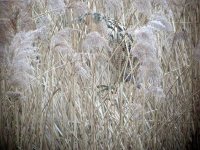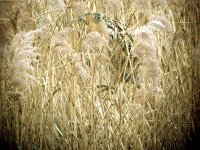Ashley beolens
Breeding the next generation of birders.
One for the experts? Can anyone tell me the best way to still achieve a good shot in the half light at the end of a day?
I visited a local lake (Tongwell lake Milton Keynes), that has a Bittern which climbs the reeds each night before dusk (it has done every winter for the past feew years). Today I attempted to get some photos, I managed some OK ones (attatched) but the shutter speed was between 1/2 and 1/4, f stop 4.9 (lowest setting) on Apature piority. I could only zoom the swaro up to 30x or it became impossible to get any light (it was the same shutter speed at 20x). Is it possible to get a quicker speed without compramising the light???
any help much apprciated.
I visited a local lake (Tongwell lake Milton Keynes), that has a Bittern which climbs the reeds each night before dusk (it has done every winter for the past feew years). Today I attempted to get some photos, I managed some OK ones (attatched) but the shutter speed was between 1/2 and 1/4, f stop 4.9 (lowest setting) on Apature piority. I could only zoom the swaro up to 30x or it became impossible to get any light (it was the same shutter speed at 20x). Is it possible to get a quicker speed without compramising the light???
any help much apprciated.






